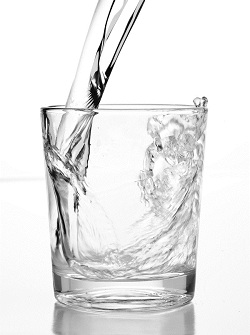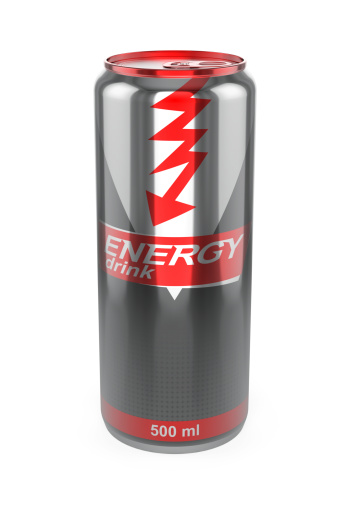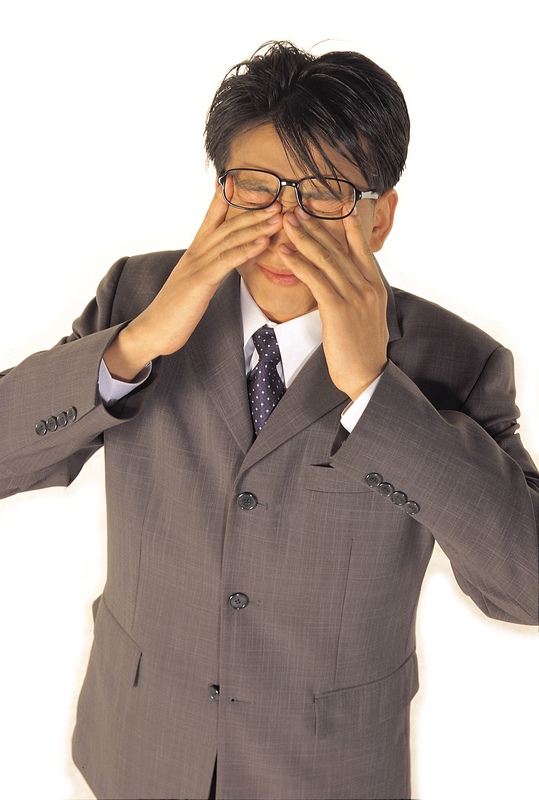Stay Informed
Popular Articles
- Hiatal Hernia: Hidden Cause of Chronic Illness
- Small Intestinal Bacterial Overgrowth (SIBO)
- Applied Lymphology: Unlocking the Secret to Pain Relief
- An Introduction to Constitutional Iridology
- The Low Down on Liver Detoxification
- An Energetic and Emotional Approach to Cancer
- Fat Facts
- Marrow in the Bones
- Blood Type and Nutrition
- Cardiac Herbs: Beyond Hawthorn
Quick Search
The School of Modern Herbal Medicine




Oh My Aching Head!
- 5/20/2015
- Categorized in: Specific Health Problems
 If you’ve never had a headache, count yourself lucky because 90% of all Americans have them at various times. Headaches are responsible for about 157 million lost workdays and are one of the top ten reasons why people visit medical doctors, accounting for about 10 million doctor visits each year. Obviously, headaches are painful and people want relief. And even though a headache isn’t a life-threatening condition, over three million people sought relief at hospitals in 2008 alone, costing an average of $1,900 per patient/per visit, or a total of $5.7 billion.
If you’ve never had a headache, count yourself lucky because 90% of all Americans have them at various times. Headaches are responsible for about 157 million lost workdays and are one of the top ten reasons why people visit medical doctors, accounting for about 10 million doctor visits each year. Obviously, headaches are painful and people want relief. And even though a headache isn’t a life-threatening condition, over three million people sought relief at hospitals in 2008 alone, costing an average of $1,900 per patient/per visit, or a total of $5.7 billion.
Headaches appear to be a simple problem, but they aren’t. Modern medicine has identified over 150 diagnostic categories for headaches. But most people don’t think about what may be causing their headaches; they just pop a pill and never address the issue. The question remains, however, “What is causing my headache?” and if you’re one of the 45 million Americans who suffer from chronic headaches the answer to that question can change your life.
Headaches can be caused by stress, eye strain, tension in the neck and shoulders, spinal misalignment, allergies, sinus problems, chemical sensitivity, physical injury, and even certain prescription drugs. So, rather than simply popping an analgesic or toughing it out, why not explore what is causing your headaches and get rid of them for good?
 Types of Headaches
Types of Headaches
Although there are many types of headaches, most headaches fall into one of three broad categories: tension, migraine or cluster. Some other major types of headaches include post-traumatic headaches (caused by injury or accident), sinus headaches, temporomandibular joint (TMJ) headaches, and allergy-related headaches.
Tension headaches are generally the least severe, but they are also the most common, afflicting about 90% of the population. As their name implies, they are typically caused by tension in the neck and shoulders, which can be brought on by stress, worry, insomnia, or working too long in front of a computer screen. They may also be caused by dehydration, caffeine, and digestive upset from certain foods.
Migraine headaches are the next most common type of headache and are much more severe. About 25% of women and about 8% of men get migraines at some point in their life. Migraines can be triggered by a wide variety of factors ranging from bright lights, loud noises, stress, odors and allergic reactions to alcohol, exposure to smoke, and eating certain foods.
Cluster headaches are the least common but the most severe. Only one percent of the population suffers from this type of headache, which has similar triggers to migraines.
The holistic approach and natural solutions presented in this article will help you better understand why you get headaches and help you choose the most effective remedies.
Headache Relief 101: The Basics
 Headaches are a symptom of an imbalance in the body or some type of interference with normal body processes. While an analgesic can temporarily stop the pain, if you want lasting relief from chronic headaches you need to identify and resolve the underlying causes. These usually involve your diet and muscle tension, but they can also include the way you handle stress, neck and eye strain, and other factors that throw your body out of balance.
Headaches are a symptom of an imbalance in the body or some type of interference with normal body processes. While an analgesic can temporarily stop the pain, if you want lasting relief from chronic headaches you need to identify and resolve the underlying causes. These usually involve your diet and muscle tension, but they can also include the way you handle stress, neck and eye strain, and other factors that throw your body out of balance.
For starters, dehydration can cause headaches. Many people simply don’t drink enough water. If you have a headache, try drinking a couple glasses of water. This will often produce an immediate reduction in pain. Eye drops can help, but it’s even better to hydrate your eyes from the inside. To stay properly hydrated be sure to drink at least one-half ounce of water per pound of body weight per day.
Beverages and Foods That Can Cause Headache Pain
While you’re increasing your water intake, try reducing your consumption of caffeinated beverages (tea, coffee, energy drinks and soda) and alcohol. These beverages are all known to trigger headaches and can be dehydrating as well. If you do consume them, increase your water intake even more. It is also wise to avoid MSG, aspartame (Nutri-Sweet®), aged meats and cheeses, and foods containing nitrates (bacon, hot dogs, cured lunch meats) as these substances have also been known to trigger headaches.
Certain foods trigger what could be called a brain "allergy." Histamine is a neurotransmitter in the brain and is also released during allergic reactions. In some people, certain foods trigger excess histamine production, causing migraines. Common foods that may cause this reaction include: chocolate, processed and pickled foods, smoked fish, chicken livers, figs, avocados, bananas, citrus fruits, nuts, peanut butter, onions, dairy products and gluten-bearing grains like wheat, oats, barley and rye.
If you suffer from frequent headaches, especially migraines, it may be helpful to keep a food journal. Record what you eat throughout the day and the time you eat it. Also record the times when you experience headaches. This can help you identify food triggers that may be making your head ache.
Relax and Relieve the Pain
Since muscle tension is the most comm on cause of headaches, find ways to reduce your stress and relax. If you work at a computer, make sure your monitor is positioned in a way that allows you to view it comfortably without straining your neck forward, up or down. And take a break periodically to stretch and do a little self-massage on your neck and shoulders. If needed, rub a small amount of Topical Analgesic like Tei Fu oil or Tiger Balm into your neck and shoulders to ease the tension.
on cause of headaches, find ways to reduce your stress and relax. If you work at a computer, make sure your monitor is positioned in a way that allows you to view it comfortably without straining your neck forward, up or down. And take a break periodically to stretch and do a little self-massage on your neck and shoulders. If needed, rub a small amount of Topical Analgesic like Tei Fu oil or Tiger Balm into your neck and shoulders to ease the tension.
In severe cases, you may find the services of a massage therapist or chiropractor to be helpful. Getting a massage is a great way to reduce stress and tension and can help reduce the frequency of your headaches. Chiropractors often relieve headaches by adjusting the vertebrae in the upper back and neck to release pressure on nerves.
If you’re under a lot of stress, try taking a Relaxing Nervine Formula (with key herbs like blue vervain, California poppy, kava-kava, scullcap and valerian) to help your body relax further. To strengthen your body’s ability to cope with stress, taking an Adaptogen Formula containing eleuthero on a daily basis can be very helpful.
Also, make sure you’re getting enough sleep. Fatigue and insomnia are known to increase muscle tension, which increases your risk of headache pain. Try an Herbal Sleep Formula (with key herbs like hops, valerian, scullcap, passionflower and kava-kava) to help you relax the tension in your body and get the sleep you need.
Alkalize Your Headache Away
Over acidity of the tissues increases tension and pain and may be an underlying factor in many headaches. Many people eat too many acid-forming foods, like meat and grains, without adequate intake of water, fresh fruits and vegetables. A Kidney Tonic Formula like KB-C (Nature's Sunshine Products) can help your kidneys flush acid waste out of your system more efficiently, especially if you increase water intake at the same time. These formulas have helped many people reduce their level of pain and tension, resulting in fewer headaches, reduced back pain, and less stiffness and pain in the joints.
Take it Easy on Your Eyes!
 Eye strain is a common cause of headaches, and our modern lifestyle demands more from our eyes than ever before. For instance, staring at a computer screen or smart phone display all day forces your eyes to focus on near-field objects and track close range movement for long periods without letting them relax by looking away and focusing on distant objects for a while. This strains the eyes, which can lead to headache pain. Reading a book in poor lighting or watching TV for extended period can also strain your eyes. There are some simple precautions you can take to avoid such strain on your eyes.
Eye strain is a common cause of headaches, and our modern lifestyle demands more from our eyes than ever before. For instance, staring at a computer screen or smart phone display all day forces your eyes to focus on near-field objects and track close range movement for long periods without letting them relax by looking away and focusing on distant objects for a while. This strains the eyes, which can lead to headache pain. Reading a book in poor lighting or watching TV for extended period can also strain your eyes. There are some simple precautions you can take to avoid such strain on your eyes.
For starters, make sure you view your computer screen, use your smart phone, read a book or watch TV in good lighting. Have your eyes checked regularly and wear glasses if you need them. Take regular breaks from close work, letting your eyes look up and focus across the room or at distant objects every 15 minutes. It also helps to stretch your neck and shoulder muscles backward to help them relax. You only have one set of eyes—take care of them!
This is a two-page article. Click "Next" below to go to page 2.
